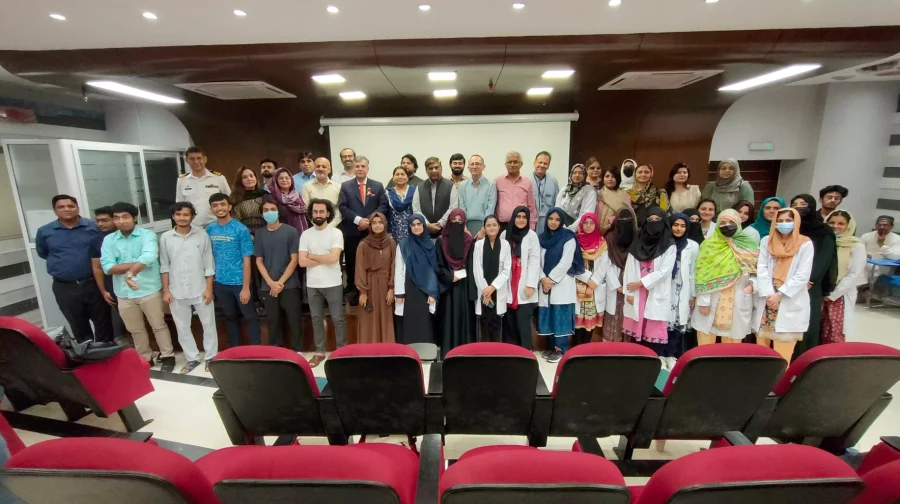Jinnah Hospital and Civil Hospital admit 50 to 70 cases of attempted suicide every day, Senator Karim KhawajaA seminar titled “KAHANI SUNO” (Listen to the Story) with the theme “Creating Hope through Action” was held at Jinnah Sindh Medical University to mark World Suicide Prevention Day.
The seminar was organized by DNP and meritorious Professor Iqbal Afridi and moderated by Dr. Abdul Qadir. Vice Chancellor Professor Amjad Siraj Memon told the audience that suicide is a serious public health issue, and that we must all do our part to prevent it.”One way to prevent suicide is to promote mental health education. We need to teach people about the warning signs of suicide and how to get help. We also need to create a culture of understanding and compassion, so that people feel comfortable talking about their mental health struggles,” he added.
Professor Iqbal Afridi told the audience that suicide is a global problem, with one person dying by suicide every 40 seconds. He said that the highest suicide rates are found in atheist communities, followed by Buddhist, Christian, and Hindu communities. The lowest suicide rates are found in Muslim communities.
Professor Afridi discussed various suicide prevention strategies, including reduced access to methods of committing suicide, enlightened media reporting, parent-child connection, religious affiliation, and promotion of mental health. He stressed the importance of interpersonal relationships, and urged people to keep an eye on their loved ones and listen to them if they are struggling.
Senator Karim Khawaja, Chairman of the Sindh Mental Health Authority, shared case studies from 2016 to 2020, which showed that Sajawal district had the highest suicide rate, while Kashmore district had the lowest. He said that every day, 50 to 70 cases of attempted suicide are admitted to Jinnah Hospital and Civil Hospital. The main reason for suicide is depression, and the self-harm ratio is also alarming. He said that the authority is planning to train doctors in psychological care.Dr. Syed Tafazzul Hyder Zaidi said that parents and students should remain connected. He urged parents to listen to their children and to provide them with emotional support.Dr. Irfan Ali said that people should start looking after themselves, be honest, and have faith in their religion.
He said that these things can help to protect people from evil thoughts and prevent suicide.The seminar was attended by Registrar Dr Azam Khan, faculty members, administrative officers, students and staff of JSMU. It was a valuable opportunity to raise awareness of suicide prevention and to discuss ways to address this important public health issue.







